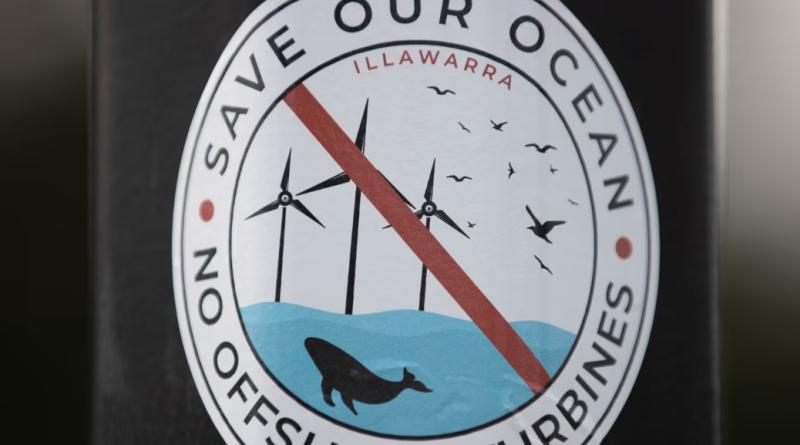Can goats and sheep stop wildfires? This shepherdess is rallying the flock

A rancher in California is training a new generation to fight fires – and foster deeper connections to the land – with farm animals
Bush is the founder of Shepherdess Land & Livestock, a ranch in the Ojai Valley that uses grazing animals to reduce the risk of wildfires in southern California.
Ruminants have become an increasingly common sight on land primed to burn across the US west, and Bush says there’s been a growing demand for her services. She and her team have put their hundreds-strong herds to work chewing down parched plants for landowners, government agencies, housing developments and detention centers.
The ancient practice is taking on new significance in an era of climate uncertainty – and there’s lots of work to go around.
That’s why Bush has made it her mission to open the pastoral profession to a new generation. As a queer-identifying woman with an urban-upbringing, she hopes to make more space in the shepherding world for nontraditional practitioners like herself and foster deeper connections to the land in the process.
“In such a volatile changing time on Earth and in society,” she said, “my drive really shifted to answering that question: how can I help more people get into this?”
That was the goal over a recent weekend, when Bush held a four-day bootcamp for 14 people from across the country. Along with learning how to care for herds, they learned that care can also help fight fires before they ignite. Surrounded by a squad of shepherds-in-training on a hot morning in early-autumn, she was not just guiding animals, but people too.
It’s grueling but gratifying work.
“At the end of the day, they are contributing to something that is bigger than themselves,” Bush said. “People discover that it’s worth it.”
Sheep and goats are naturally equipped with the tools to mitigate wildfires: they’ll eagerly chomp down dry vegetation and are adept at navigating tough terrain where machines can’t reach. Their small hooves help aerate hardened soil, while their stool offers fresh fertilizer that helps native plants flourish.
But prescribed grazing requires a more surgical application. Shepherds work closely with dogs, who both protect and direct sheep and goats to the right areas, and they also must understand which plants are most palatable and when, how to time grazing with weather and seasons, and the careful mix and number of animals needed for particular parcels of land.
Done correctly, this type of grazing can positively benefit the ecology while helping communities stay safe. Armed with a culture of camaraderie and dedication to addressing both the causes and consequences of the climate crisis, Bush and her team are helping to spread the word.
Along with this bootcamp, she founded the Grazing School of the West, and her company is partnering with the Los Angeles county sheriff’s department to introduce incarcerated people to the work, offering participants a path to pursue when released.
It started with a dog
For Bush, the dream started with a dog.
As a college student eager to jump into conservation, Bush adopted Becky, a herding border collie, who introduced her to the world that would become her life.
It was a circuitous route. She spent time with shepherds in Spain and France and learned from the Maasai cattle herders in Tanzania. She’s moved sheep across popular parks in the San Francisco Bay Area, and set up prescribed grazing programs for others. She even took stints doing stunts in Hollywood.
But in 2020 she landed a dream property and got to work.
Tucked against the Topatopa Mountains, the ranch sits up a meandering canyon road from the artistic enclave of Ojai. The rural town, located less than two hours from Los Angeles, is equal parts vacation destination, celebrity hot spot and hub for climate-conscious activism.
The region has also been hammered by extreme weather events, including drought, floods and a devastating 2017 fire that consumed more than a thousand homes and businesses.
There are people like Kaitlyn McQuillen, who was a tax accountant with a passion for animals before she joined. Despite her dreams of becoming a veterinarian, the recent college grad had limited experience when she showed up last year – and she delivered a set of lambs on her first day.
John Fraher, the operations manager and lead shepherd, found his way into the field after Bush dropped into the coffee shop he was managing in San Diego. It didn’t take long before he was getting his hands dirty.
“It was such a weird change in my life,” he said, recalling the first time he introduced himself as “John the shepherd”. He’s found a calling in the arduous but important work. “I can do something that is serving the community at large, making a more fire-safe ecology, and I am outdoors in beautiful places,” he said.
Of course, a shepherding team wouldn’t be complete without dogs. There are eight dogs who live and work on this land, including the recent addition of a stray mix rescued from the streets of downtown LA.
While most of the goats and sheep are known only by their numbers, there are some standouts: the Suit, a goat so buff he looks like he’s clad in fake muscle, Too-thrie, a friendly goat who leads the pack with a bell; and Red, a sheep with twins. The ranch is also home to a cadre of chickens overseen by two mean geese – Domla and Schmidt – two donkeys and a horse.
These animals are part of the family forged by this unique blend of passionate ranchers – and that’s a big part of what attracts newcomers.
By the time the sun began to sink below the hills, casting an ochre twilight over the pastures, it was clear bootcamp participants were feeling the lure of pastoral life.
Steven Gutierrez gazed out at the hundreds of sheep and goats. Taking in the sage-tinged breeze, he felt a world away from his home in Compton. “This is heaven for me,” he said, watching a tarantula skuttle into the paddock.
The industry isn’t without issue, and reports recently highlighted rampant labor abuses in the field and the exploitation of migrant shepherds. The problem is one Bush hopes can be solved by introducing the work to people with practices closer to hers, which include valuing workers.
“I am encouraged that we can move forward in this industry that supports healthy ecologies as well as equitable, just and rewarding jobs for all people – that’s the direction we are going,” she said.
That’s what she’s trying to pass on to bootcamp participants like Gutierrez, who could be next to move the cause forward.
By the end of day four, the crew gathered under the trees one last time before they set off toward home, taking with them new lessons and new friendships. Though the weekend was ending, for some it marked a beginning. Bush believes her movement will grow.
“The heart and spirit connection humans have with animals and the land will always be there,” she said. “Even though we live in a technological world, we will always need to have that connection – and the jobs that keep us connected to the earth.”
Photograph: Gabrielle Canon/The Guardian - Brittany ‘Cole’ Bush founded a ranch in the Ojai Valley that uses grazing animals to reduce wildfire risk.




